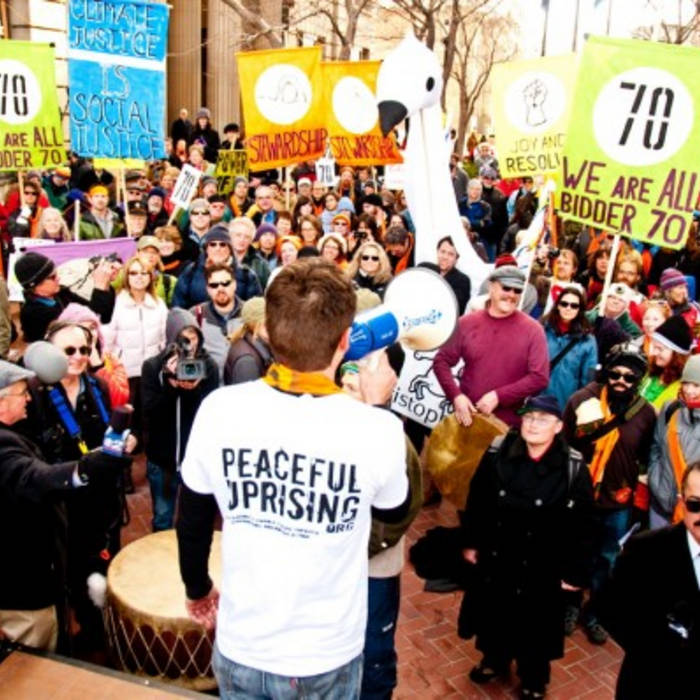I believe that Bidder 70 stood in stark contrast to The Monkey Wrench Gang, especially when it comes to the ongoing debate we have had in class about good versus bad activism. Although the intent is similar in both cases, as both groups fight for nature and the environment, the approach is completely different.
On one hand, the group in The Monkey Wrench Gang sabotage billboards and buildings belonging to the ‘evil’ corporates. As I have discussed earlier in a blog, I believe that this approach is too extreme. The group can quickly be labeled as the villains, which in turn discredits their beliefs and values.
However, Tim DeCristopher, the man behind Bidder 70, utilizes effective activism. It all starts with a relatively simple and peaceful protest, as Tim DeCristopher disrupts an auction selling land for drilling, by successfully bidding on some of the land himself without an intent to drill. As a result, his action includes severe implications, both positive and negative. On the negative, Tim DeCristopher quickly finds himself in the crosshairs of powerful corporates and the government, as he is prosecuted for civil disobedience. But on the positive, he gains national media attention. Tim DeChristopher is given a powerful voice in society, and takes full advantage. For instance, he founds Peaceful Uprising, expresses his concern for mountaintop removal in West Virginia, and supports a new democratic candidate in Utah.

Peaceful Uprising protest. Link: https://f4.bcbits.com/img/a1302879127_16.jpg
Bidder 70 therefore illustrates how powerful civil disobedience can be. The documentary itself even refers to Mahatma Gandhi and Dr. Martin Luther King on multiple occasions, possibly the two people behind the most successful movements involving non-violence. Drawing these comparisons sends an impactful message to the viewers. It gives us hope that we can have a voice in the issue of climate change. And we must utilize that, the same way Tim DeCristopher disrupted the auction posing as bidder 70.